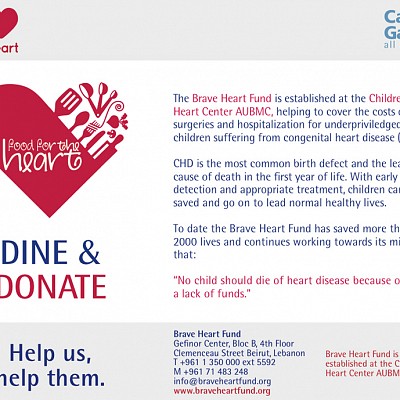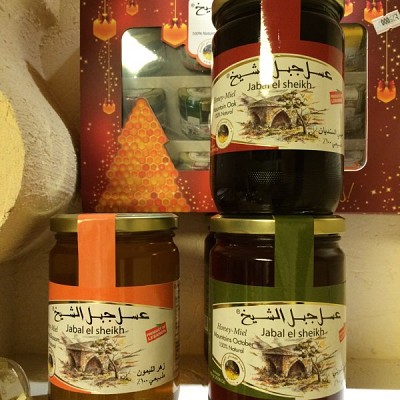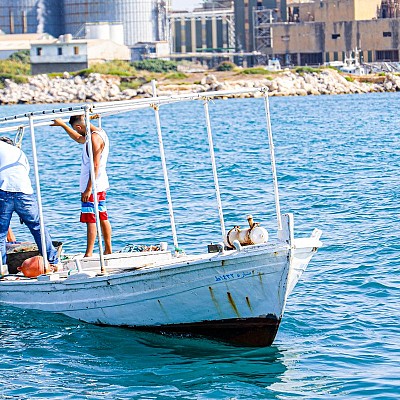 Fair Trade Lebanon:
Fair Trade Lebanon:
- Non-profit NGO founded by five members in 2006.
- It aims to improve the livelihoods of the most disadvantaged people living in rural Lebanon.
- Fair Trade Lebanon (FTL) thrives to create an economic environment that is fair, reliable, sustainable and respectful of nature.
- Committed toward small producers, women’s’ cooperatives and small-scale family businesses, located in disadvantaged areas, FTL fights against rural exodus, poverty and social disintegration due to various crises that have marked both, the country and the region.
- Identify products with Lebanese uniqueness
- Search for small production units in remote regions
- Control and improve the quality of products
- Propose additional equipments and trainings
- Provide access to markets
- Promote Fair Trade values
- Maintain in Lebanon the value-added from food processing and packaging
Achievements:
- Member of the WFTO (World Fair Trade Organization) since September 2010 and First Lebanese member to earn this certification after two years of monitoring
- 52 products marketed under the brand “Terroirs du Liban”
- 14 partners: food-processing cooperatives and 350 independent farmers
- Direct beneficiaries: 631 individuals ; 52% women
- Indirect beneficiaries: 3155 individuals
- 3 important markets: supplying to France, Canada and Germany.
- First pioneer and FT actor in Lebanon: today you can purchase the products at Caliprix, O&C, ASSAHA...
- Constant awareness raising strategies: conferences in universities, forums, advocacy

DEFINITION AND PRINCIPLES OF FAIR TRADE Fair Trade is a trading partnership, based on dialogue, transparency and respect that seeks greater equity in international trade. It contributes to sustainable development by offering better trading conditions to, and securing the rights of, marginalized producers and workers –especially in the South. Fair Trade Organizations (backed by consumers) are engaged actively in supporting producers, awareness raising and in campaigning for changes in the rules and practice of conventional international trade. Principles Governing Fair Trade Organizations: Fair Trade seeks to transform and adapt trading structures and practices in favour of the poor and disadvantaged, especially in the South. By building trading partnerships based on equity and transparency, Fair Trade contributes to sustainable development formarginalised producers, artisans, workers, farmers and their communities. Producers, workers and farmers use the benefits of Fair Trade to improve their social and economic conditions, especially among the most disadvantaged members of their organisation.
 Terroirs du Liban:
Terroirs du Liban:
The following principles and values characterize the core missions of Fair Trade Organizations:
- Creating Opportunities for Economically Disadvantaged Producers: Fair Trade is a strategy for poverty alleviation and sustainable development. Its purpose is to create opportunities for producers who have been economically disadvantaged or marginalised by the conventional trading system.
- Transparency and Accountability: Fair Trade involves transparent management and commercial relations to deal fairly and respectfully with trading partners.
- Capacity Building: Fair Trade is a means to develop producers’ independence. Fair Trade relationships provide continuity, during which producers and their marketing organizations can improve their management skills and access to new markets.
- Promoting Fair Trade: Fair Trade Organizations raise awareness of Fair Trade and the possibility of greater justice in world trade. They provide their customers with information about the Organization, the products, and in what conditions they are made. They use honest advertising and marketing techniques and aim for the highest standards in product quality and packing.
- Payment of a Fair Price: A fair price in the regional or local context is one that has been agreed through dialogue and participation. It covers not only the costs of production but enables production which is socially just and environmentally sound. It provides fair pay to the producers and takes into account the principle of equal pay for equal work by women and men. Fair Traders ensure prompt payment to their partners and, whenever possible, help producers with access to pre-harvest or pre- production financing.
- Gender Equity: Fair Trade means that women’s work is properly valued and rewarded. Women are always paid for their contribution to the production process and are empowered in their organisations.
- Working Conditions: Fair Trade means a safe and healthy working environment for producers. The participation of children (if any) does not adversely affect their well-being, security, educational requirements and need for play and conforms to the UN Convention on the Rights of the Child as well as the law and norms in the local context.
- Child Labour: Fair Trade Organizations respect the UN Convention on the Rights of the Child, as well as local laws and social norms in order to ensure that the participation of children in production processes of fairly traded articles (if any) does not adversely affect their well-being, security, educational requirements and need for play. Organizations working directly with informally organized producers disclose the involvement of children in production.
- The Environment: Fair Trade actively encourages better environmental practices and the application of responsible methods of production.
- Trade Relations: Fair Trade Organisations trade with concern for the economic, social, environmental and cultural well-being of small producers and do not maximize profit at their expense. They maintain long-term relationships based on solidarity, trust and mutual respect that contribute to the promotion and growth of Fair Trade. An interest free pre- payment of at least 50% is made if requested.
- Cultural Identity: Fair Trade recognizes, promotes and protects the cultural identity and traditional skills of small producers as reflected in their craft designs, food products and other related services.
 Terroirs du Liban:
Terroirs du Liban:
- +9615952153
- [email protected]
- Hazmieh, Hourani center, St Elie street, Facing Mekhitaristes School
Categories:
News






































